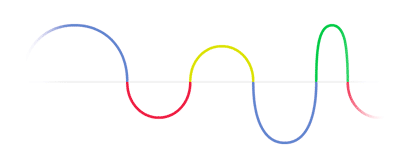Doodle: Heinrich Rudolf Hertz's 155th Birthday
Heinrich Rudolf Hertz (February 22, 1857 – January 1, 1894) was a German physicist who clarified and expanded the electromagnetic theory of light that had been put forth by Maxwell. He was the first to conclusively prove[1] the existence of electromagnetic waves by engineering instruments to transmit and receive radio pulses using experimental procedures that ruled out all other known wireless phenomena.
Doodle: Ito Jakuchu's 296th Birthday
Itō Jakuchū (1716-1800) was an Eccentric Japanese painter of the mid-Edo period when Japan had closed its doors to the outside world. Many of his paintings concern traditionally Japanese subjects, particularly chickens and other birds. Many of his otherwise traditional works display a great degree of experimentation with perspective, and with other very modern stylistic elements.
Though compared to Soga Shōhaku and other exemplars of the mid-Edo period eccentric painters, Jakuchū is said to have been very calm, restrained, and professional. He held strong ties to Zen Buddhist ideals, and was considered a lay brother (koji); but he was also keenly aware of his role within a Kyoto society that was becoming increasingly commercial.
Doodle: Birthday Charles Dickens 7 February 2012
Charles John Huffam Dickens (play /ˈtʃɑːlz ˈdɪkɪnz/; 7 February 1812 – 9 June 1870) was an English novelist, generally considered the greatest of the Victorian period. Dickens enjoyed a wider popularity and fame than had any previous author during his lifetime, and he remains popular, having been responsible for some of English literature's most iconic novels and characters.
Many of his writings were originally published serially, in monthly instalments, a format of publication which Dickens himself helped popularise. Unlike other authors who completed novels before serialisation, Dickens often created the episodes as they were being serialised. The practice lent his stories a particular rhythm, punctuated by cliffhangers to keep the public looking forward to the next instalment.The continuing popularity of his novels and short stories is such that they have never gone out of print.
Dickens's work has been highly praised for its realism, comedy, mastery of prose, unique personalities and concern for social reform by writers such as Leo Tolstoy, George Orwell and G. K. Chesterton; though others, such as Henry James and Virginia Woolf, have criticised it for sentimentality and implausibility.
Subscribe to:
Posts (Atom)







